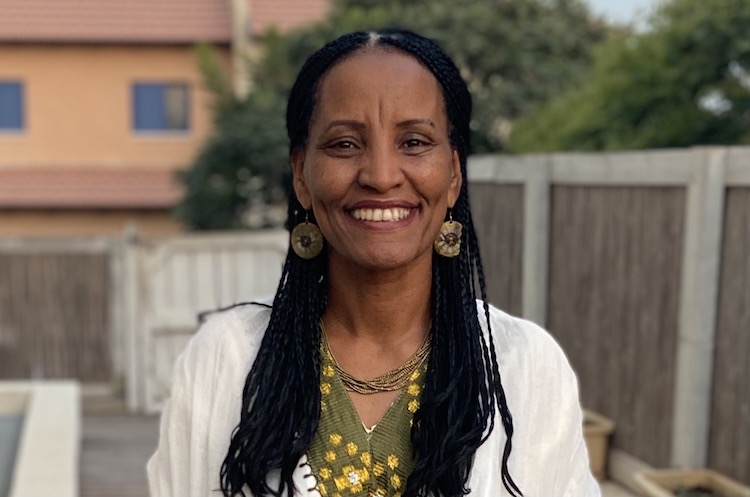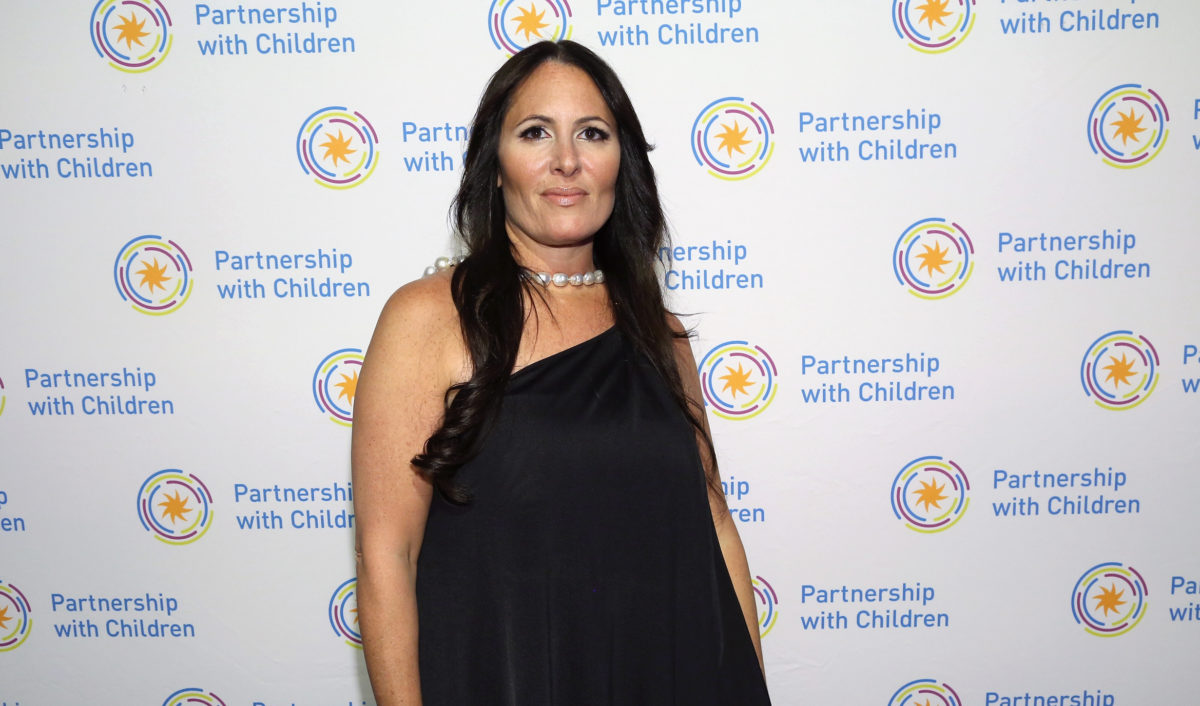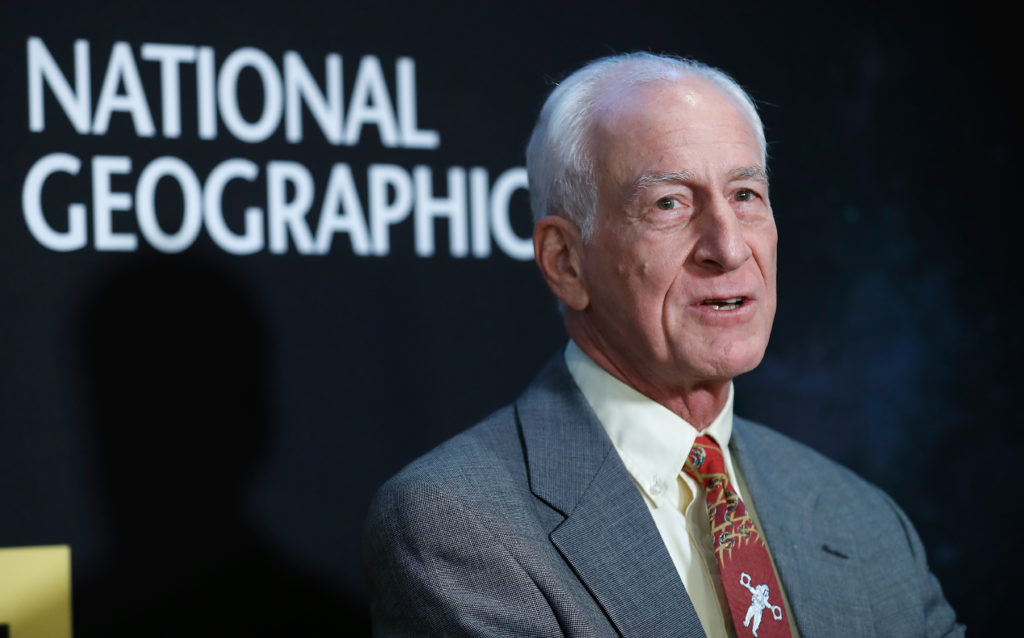Your Daily Phil: The Jewish Agency’s first Ethiopian director + How The Columbia Protocol saves lives
Good Tuesday morning!
The official global COVID-19 death counthas passed five million, and the pandemic isn’t over. Yet in many parts of the world, the United States included, it is subsiding. Air travel is approaching pre-coronavirus levels. The Metropolitan Opera is staging its longest work, Wagner’s six-hour “Die Meistersinger,” for an in-person audience, despite the dangers of singing.
Jewish organizations are taking advantage of the new conditions by holding more in-person events — carefully. The Jewish Federations of North America is holding its first in-person Young Leadership Cabinet retreat in more than two years in California, and mostly outdoors, a spokesman told eJewishPhilanthropy. Attendees must submit proof of vaccination on arrival and a negative COVID PCR test within 72 hours.
Starting yesterday, the Jewish Federation of Greater Washington began permitting staff to plan indoor meetings or events for small groups of up to 10 people, while requiring that a virtual option be offered as well. The gatherings will be held outdoors when possible, a spokeswoman said. The federation is requiring proof of vaccination from staff, but not from visitors, although it is asking that they also be vaccinated.
The Jewish Federation of Greater Atlanta is requiring visitors to submit proof of vaccination in advance in order to return to in-person, one-on-one fundraising meetings and programs, said Beth A. Warner, the federation’s chief philanthropy officer. “We are not accepting walk-up attendees to events,” Warner added. “This keeps our staff and volunteers from having to be “vaccine police” at the door. The federation is also holding events outdoors when possible.
Chicago’s Jewish United Fund (JUF) is holding meetings of fewer than 30 people indoors, in venues that allow for social distancing, while holding larger ones either outdoors or virtually, said Linda Haase, a spokeswoman. JUF is requiring all in-person attendees to attest to being vaccinated.
Meanwhile, UJA-Federation of New York, which just launched its annual campaign by holding a 200-person event attended by New York State Gov. Kathy Hochul, is requiring proof of vaccination in order to participate in an in-person event, said spokeswoman Emily Kutner.
GOING FORTH
A new Jewish Agency director shares her powerful story of seeking home


Jewish Agency for Israel
Sigal Kanotopsky has spent her life in two countries — her native Ethiopia, and Israel, to which she immigrated with her family as a child. Now, she has resettled with her husband and three of her four children in a Philadelphia suburb, where she has taken the post of director of the Jewish Agency for Israel in the Northeast U.S. — the first Ethiopian immigrant to ever hold a regional role, she told eJewishPhilanthropy’s Helen Chernikoff in an interview about her family’s journey and her vision for her new job, in which she’ll lead the agency’s fundraising in the region and manage its 100 representatives.
Yearning for Jerusalem: Kanotopsky, 45, was born in the village of Merevah in Ethiopia’s rural, rocky northwest. Her father was a merchant and a farmer. She lived there with her family — one of tens of thousands of such followers of Jewish tradition in the country who nursed long-held dreams of coming to Israel — until the early 1980s when her parents got wind of a rumor: If they walked to Sudan, they might be able to get from there to Jerusalem. It was a mere rumor, she emphasized, but it was enough for her parents. “Jerusalem wasn’t a place for them to travel to. It was their destiny.”
Loss along the way: Her family sacrificed to reach that destiny, Kanotopsky said. One of her five siblings died during the arduous trek to Sudan. After waiting six months in a refugee camp in Gedarif, Jewish Ethiopian agents and the Mossad brought them to Israel. They arrived on the first Shabbat of Hanukkah, in 1983. Kanotopsky’s father died about a year and a half after their arrival. Despite the upheaval and hardships, at 7 years old, she experienced the move as a big adventure, picking up Hebrew quickly. Her now-single mother told her children repeatedly that their economic situation had nothing to do with their dreams.
Multiple identities: Sigal’s mother had high expectations for her children, and even as Kanotopsky grew up and started to understand the challenges she would face in Israeli society as a new immigrant, and as an Ethiopian woman, she was determined to beat them. When deciding on her course of officer training in the IDF, she was told that no Ethiopian had ever become a communications officer, and that she shouldn’t try — advice that she ignored, ultimately becoming the first to reach that milestone. But life as an immigrant was disorienting. She felt Israeli, but was constantly reminded that she was Ethiopian. “I was always asking myself, ‘Who am I?’”
HELPING HAND
Meet the creator of the tool that aims to predict — and prevent — suicide


Courtesy
The spirit of community — kehillah — is ingrained in Jewish tradition: the prayer quorum of 10 people, or the way friends pool resources to deliver meals to a mourner in the days after the loss of a loved one. Dr. Kelly Posner argues that tapping into that kehillah can also help prevent suicide. “When a community comes together, there’s hope,” said Posner, founder and director of the Columbia Lighthouse Project and an expert in suicide prevention. Amid a global spike in depression and anxiety during the COVID-19 pandemic, she talked to Jewish Insider’s Gabby Deutch about the tool she created to identify and assist people at risk of suicide.
Just ask: “Just ask. You can save a life,” she explained, summing up her philosophy. “It’s a simple message that declares that asking about suicide is not difficult, and everyone is empowered to make a difference, and everyone in the community has a role in preventing suicide.”
Setting things straight: But for Posner, 54, “just ask” is more than a philosophy. It’s the basis of a protocol she created to detect suicidal thoughts and ideation that is backed by years of rigorous scientific research and is used in dozens of countries around the world. Known as the Columbia Protocol, the Columbia-Suicide Severity Rating Scale features a standardized set of straightforward questions to identify people who are considering suicide and to determine who is at risk of acting on suicidal thoughts.
Israeli action: The Columbia Protocol has spread “like wildfire,” said Posner. One country that has introduced the Columbia Protocol nationwide — schools, governments, medical professionals — is Israel, where she has worked with the Israel Defense Forces to help identify soldiers at risk of suicide. The protocol has also been used with Holocaust survivors in Israel.
HOLY PURSUIT
In the service of God (aka client service)


Caleb Jones/Unsplash
“Marketing is often about choices: How do I engage this audience? Which marketing channels are the most effective for this objective? Where should I apply that next precious dollar? But how do you choose when everything you do is in the service of God and the very nature of choosing potentially denies God of something?” writes Craig M. Goldstein, former chief marketing officer of the Orthodox Union, in an opinion piece for eJewishPhilanthropy.
Lessons learned: “Trained in marketing strategy, execution and the discipline of client service in the advertising industry, I strived, though struggled may be a better verb choice, to apply my expertise to this theological/business question. My time at the OU taught me lessons that apply not only to religious organizations, but to all organizations, corporate and nonprofit alike.”
Limited resources: “Ideas may be unlimited, but resources are not: When the work is not solely defined as ‘work,’ but as a holy pursuit, the seemingly mundane details of resource allocation, work quality, prioritization and process can be subjugated to the pursuit of bringing honor to God. But business rationale should not be divorced from the pursuit of favor in God’s eyes.”
TOGETHERNESS
To fuel the Jewish future’s engine, we need something old and something new


JDC
“Born and raised in Cherkasy, Ukraine, Jewish culture and tradition have been part of my life since I was just 2 years old — attending Prakhim, the local Jewish kindergarten, Sunday school, Shabbat services and even family retreats,” writes Ilona Levit, 18, head of the American Jewish Joint Distribution Committee’s Active Jewish Teen chapter in Cherkasy, in an opinion piece for eJewishPhilanthropy.
Jewish journey: “I always knew this was something I wanted to be a part of, and I wanted to inspire others to want to do the same. So, as I got older, I looked for ways to continue my Jewish journey. That obvious next step would be to join Active Jewish Teens (AJT), the American Jewish Joint Distribution Committee’s Jewish teen network in the former Soviet Union… I remember very clearly my first regional AJT Shabbaton in 2018. From the moment I arrived, I felt I had found a group of soulmates with whom I truly connected, as well as teachers and mentors who inspired me with their knowledge of Jewish culture, tradition and values.”
Real connections: “That first in-person experience has never left me. However, in the last year-plus, quarantine mandates and pandemic restrictions forced much of our in-person gatherings to be reimagined for a virtual setting, creating programming such as Zoom meetups, classes, seminars and entertainment… I missed these non-scripted moments that happen when you are together in person. It’s the quick hello in the hallway, a chat over lunch, a random conversation as we were running to another seminar where the true connection happened.”
Worthy Reads
Mixed Motives: The primary purpose of fundraising should not be raising funds, asserts Vu Le on his blog, NonprofitAF, while also acknowledging that many will find his stance nonsensical. The fundraising status quo has enabled the nonprofit sector to do much good, Le writes, but all too often, fundraisers must make moral compromises that undermine the visions of the organizations they serve. “It’s time to reorient ourselves and embrace a more expansive role for fundraising and fundraisers, one where fundraising is a vehicle for change, and thus fundraisers too are agents of equity and justice,” Le concludes. [NonprofitAF]
Expanded Definition: In the Stanford Social Innovation Review, Jonathan F. P. Rose urges the business community to understand that while the dominant economic system has “degraded the commons,” such as the environment, by overemphasizing growth, corporations and companies can also play a central role in regenerating a healthy society. To do this, however, that society and the businesses that operate within it must develop a new understanding of “ownership” that includes responsibilities in addition to rights. “To create truly regenerative businesses, we must develop profit-allocation models that support the well-being of the systems they are part of,” writes Rose. “We need to expand our view of the allocation of profits to include serving our obligations and responsibilities.” [SSIR]
Moon Shot Against Hunger: When David Beasley, director of the U.N.’s World Food Programme, tweeted that 2% of Elon Musk’s wealth could solve world hunger, Musk offered up the dollars — about $6 billion — on the condition that Beasley could clearly explain how it would work, reported Rounak Jain in Business Insider. Beasley was forced to rephrase his assertion more precisely, stating that $6 billion could help save 42 million people suffering from famine. “Let’s talk,” Beasley tweeted back. “It isn’t as complicated as Falcon Heavy (a spacecraft made by Musk’s company), but too much at stake to not at least have a conversation. I can be on the next flight to you. Throw me out if you don’t like what you hear!” [BusinessInsider]
Community Comms
Apply! Want to join the team at Jewish Insider/eJewish Philanthropy? We’re looking for a top-notch philanthropy editor. Learn more here.
Be featured: Email us to inform the eJP readership of your upcoming event, job opening, or other communication.
Word on the Street
Jacob Kamaras will assume the role of publisher and editor in chief of San Diego Jewish World Jan. 1… The Israel Policy Forum announced the members of the 2021 cohort of Charles Bronfman IPF Atid Conveners… Congregants at the Forest Hills Jewish Center, in Queens, N.Y., approved the sale of their block-long building… The Arthur M. Blank Family Foundation is providing $10 million from its new democracy program area in support of nonprofits working to advance voting rights and civic engagement… Corporate social investments increased 41 percent over the last three years, according to a report from the Chief Executives for Corporate Purpose… The U.K.-based Power of Nutritionlaunched a partnership with the Eleanor Crook Foundation, the END Fund and Rotary International to fund a five-year, $30.1 million nutrition program in Ethiopia…
Pic of the Day


Courtesy
Artist Hagit Cohen (second from left) views her work with JCC East Bay staff members Sarah Wofman-Robichaud, Natalie Garcia and Rachel Cohen as they prepare to mount an upcoming show, “LABAlive!,” which starts Nov. 7. LABA East Bay uses Jewish texts to inspire art, dialogue and study.
Birthdays


John Lamparski/WireImage
Former NASA astronaut who has made five flights in the Space Shuttle and is currently a professor of aeronautics and astronautics at MIT, Jeffrey A. Hoffman…
County executive of Montgomery County, Md., Marc Elrich… Chairman and CEO of BlackRock, Larry Fink… Democratic nominee for Maryland lieutenant governor in 2018, Susan Wolf Turnbull… Professor of Jewish studies at the University of Virginia, Vanessa L. Ochs… Research fellow at the Shalom Hartman Institute in Jerusalem, Alan D. Abbey… CNN special correspondent, Jamie Sue Gangel… Head of school at Weizmann Day School in Los Angeles, Lisa Feldman… Professor of Jewish history at UCLA and president of the board of the New Israel Fund, David N. Myers… Financial planner at Grant Arthur & Associates Wealth Services, and the author of a book on the complicity of Lithuania in the Holocaust, Grant Arthur Gochin… President of global content at Viva Creative, Thomas Joseph “Joe” Talbott… Marc Solomon… Managing director of government affairs at Microsoft Azure, John Sampson… Actor, director and producer, best known for playing Ross Geller in the sitcom “Friends,” David Schwimmer… Former assistant attorney general for antitrust at the Justice Department during the Trump administration, Makan Delrahim… Professor of economics at MIT, Amy Nadya Finkelstein… Founder and CEO of Spring Hills Senior Communities, Alexander C. Markowits… Columnist at The Guardian and editor at Jacobin, David Sirota… Eastern director at the Simon Wiesenthal Center, Michael Cohen… Member of the Knesset for the Yisrael Beiteinu party, Alexander Kushnir… Editor of the Outlook section for The Washington Post,Adam B. Kushner… Marc B. Rosen… Director of government relations at the Israel Policy Forum, Aaron Weinberg… Front-page editor at HuffPost, Celeste B. Lavin…
Email Editor@eJewishPhilanthropy.com to have your birthday included.








